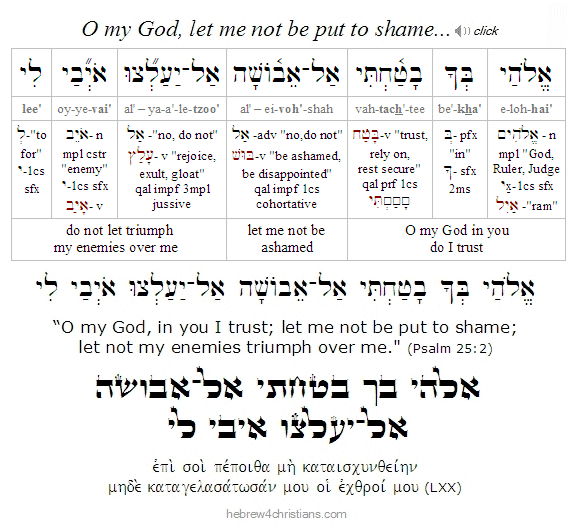|
Just before Moses began his reproof of Israel, he declared his love and faith in the people. "The LORD your God has multiplied you until you are today as numerous as the stars in the sky (כְּכוֹכְבֵי הַשָּׁמַיִם). May the LORD, the God of your fathers, make you a thousand times more as you are (כָּכֶם), and bless you, as He promised you" (Deut. 1:10-11). Moses first brought up God's love for the Jews before he began his admonition. Notice he used the word kachem (כָּכֶם, "as you are") in this blessing. May the LORD multiply you - as you are - a thousand times! You are beloved; you are worthy: may the LORD bless you a thousand times over! (How different is this picture of Moses than the typical cartoon made of him by many in Christianity, who envision him smashing the tablets as if that were his "last word" on the subject of the Torah to Israel!)
Were the people perfect then? Obviously not, as would be clear through Moses' later admonition to them. Nonetheless, Moses used a "good eye" to see their potential as God's chosen people. Here was this ragtag group of of desert wanderers, descendants of slaves from the "house of slavery," whom the LORD God Almighty personally redeemed to be His own treasured possession. Despite their failures in the past and all that went before, Moses reminded them that they were esteemed as mamlechet kohanim v'goy kadosh (מַמְלֶכֶת כּהֲנִים וְגוֹי קָדוֹש), a "kingdom of priests and a holy people" (Exod. 19:6).
Moses' approach gives us insight about how we might correct the people we truly love. Often people become defensive when they are criticized and stop listening. Adding sincere praise and encouragement helps them open up to our message, since it is grounded in a sense of respect and value for their well-being. God thinks highly of the Jewish people, and that is the very first thing to be heard. God greatly esteems us, too. Despite the fact that we are sinners, God truly loves us. He considers us worthy to be saved. Again, why else did Yeshua suffer and die on the cross if God did not value our lives so much?
Shame is never the goal of the Torah. As King David prayed: Elohai bekha vatachti; al-avoshah (אֱלהַי בְּךָ בָטַחְתִּי אַל־אֵבוֹשָׁה): "My God, I trust in you; let me not be ashamed" (Psalm 25:2). Some people use the idea of God's "law" as a sort of club to hammer a sense of guilt upon the soul. They insist that man is "totally depraved" and under God's death sentence. Such people then hope to explain the good news of the gospel to escape God's righteous wrath for sin. These people, perhaps well-meaning, forget that the LORD is "near" - karov- to the brokenhearted. This adverb means "close enough to touch." The same root is used for the word korban (קָרְבָּן), an offering that draws us near to God, as well as karov (קָרוֹב), a near kinsman. In other words, God's desire has always been for people to draw near to Him, and He has always provided a way for people to do so -- even those who lived under the terms of the Sinai Covenant.
Guilt (אַשְׁמָה) is an objective state of being sinful that may or may not be accompanied by feelings of remorse, but shame (בּוּשָׁה), at least in its toxic sense, is a state of soul that regards itself as fundamentally flawed, inadequate, and essentially unlovable. God does not want us to grovel in self-disgust or live in constant fear of His judgment. He does not want us to hate ourselves or to regard ourselves as unlovable. As His creation, He loves us and finds us of value and worth. Why else would he have given His Son up to ransom us from sin and death? Like a parent who loves his child but wants to correct him by saying, "this doesn't become you," so God wants us to remember who we really are. He wants us to "walk in love" as His "dear children of light" (Eph. 5:8). God's correction is meant to form His character within us, and this first must begin with our assurance of our value, dignity, and worth in His eyes.
We are commanded to judge with tzedakah, with love as our underlying assumption. If God so commands us, surely we can trust that He likewise judges us this way. God's love is his essence - "God is love" (ὁ θεὸς ἀγάπη ἐστίν) - and He regards you as worthy to receive His love and blessing. He loves you b'ahavat olam - with "an everlasting love" (אַהֲבַת עוֹלָם), and therefore in chesed he draws you to Himself (Jer. 31:3). Why else would Yeshua die on the cross unless He expressed God's desire to judge others favorably?
Be encouraged, chaverim. You are "fearfully and wonderfully made" and you have a future and a hope in the world to come (Jer. 29:11). "There is no fear in love, but perfect love casts out fear. For fear has to do with punishment, and whoever fears has not been perfected in love" (1 John 4:18). Keep hope. God's love never fails (1 Cor. 13:8).
Hebrew Lesson
Psalm 25:2 reading (click):
|



